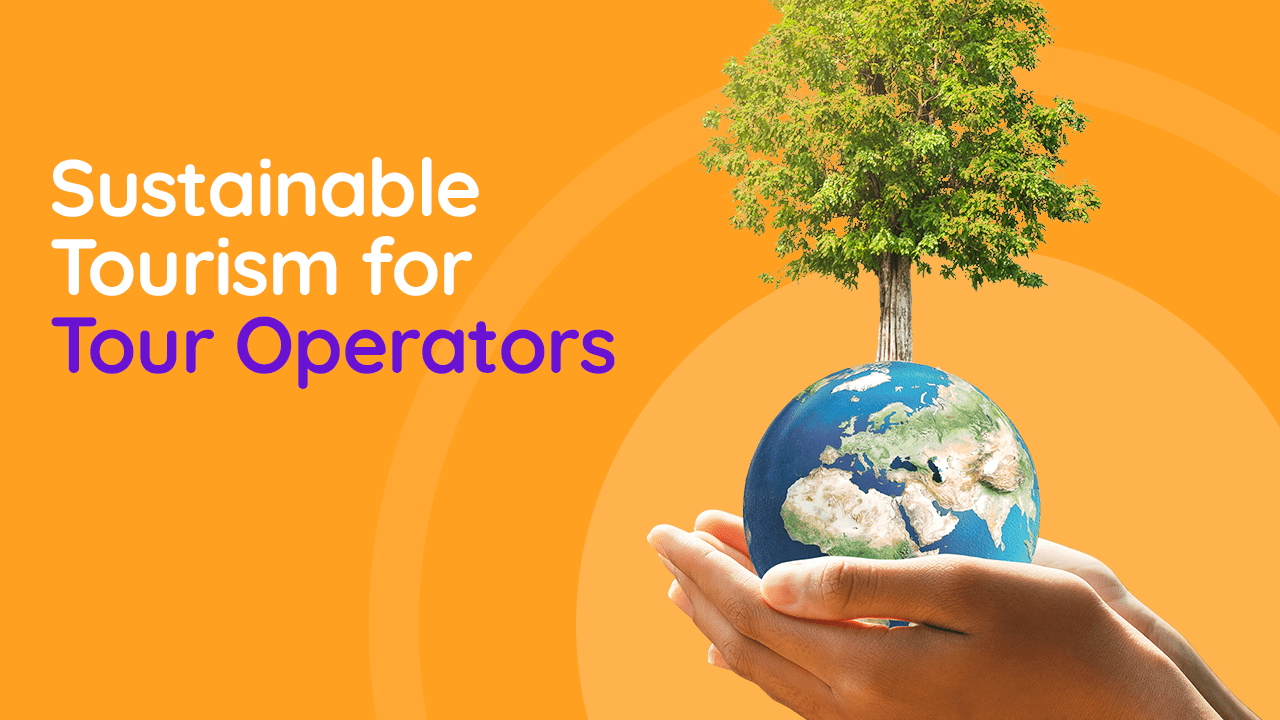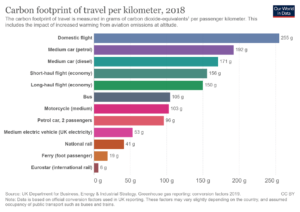What Is Sustainable Tourism And Why Is It Important For Tour Operators

Which famous sustainable tourism saying was coined decades ago by the Baltimore chapter of Grotto?
If you guessed, “Take only pictures; leave only footprints,” you got it!
But is it realistic? Maybe so for the members of Grotto. If you’re exploring caves, taking only pictures and leaving only footprints is a goal you can aim for. But when your tourism involves interaction with local people, wildlife, and sensitive ecosystems, just your presence there is bound to have more effect than a footprint.
Being keenly aware of the possible effects and shaping your interactions to have the maximum positive effect and minimum negative effect is the essence of sustainable tourism.
What are the three domains of sustainable tourism?
Sustainable tourism, also known as responsible tourism, is defined by the United Nations’ World Tourism Organization as “tourism that takes full account of its current and future economic, social and environmental impacts, addressing the needs of visitors, the industry, the environment, and host communities.”
So the three domains that need to be addressed in sustainable tourism practices are:
- Environmental sustainability
- Social sustainability
- Economic sustainability
Let’s take a look at each one.
Environmental sustainability in tourism
Tourist transportation, accommodation and attractions inevitably use natural resources, such as water. Think about golf courses. The average golf course in the Northeastern United States uses 260,000 gallons a year per irrigated acre of turfgrass. In the Southwestern United States, the average golf course uses 1.3 million gallons a year per irrigated acre of turfgrass!
Golf courses aren’t the only drain on our water resources. So are swimming pools, water parks, spas and ubiquitous but overlooked bathrooms. Add up toilet flushes, baths, hand-washing and personal grooming – and you’ve got a lot of water consumption per tourist.
In addition to using natural resources, the transportation, accommodation and attractions involved in the tourism industry also have a significant carbon footprint. Transportation, especially airplane and individual car travel, is a major contributor, as seen in this graph from Our World in Data:

The impact from accommodation can vary considerably. Full-service hotels in Hong Kong and Macau, for example, emitted over 270kg CO2e, compared to 17kg CO2e for Iceland.
Climate change brought on by carbon emissions is such a looming threat that the Tourism Declares a Climate Emergency initiative has been joined by an increasing number of forward-thinking organizations in the tourism industry.
What can you as a tour operator do to promote environmentally responsible tourism?
As a tour operator, you have the power to promote environmentally sustainable tourism by preferentially choosing providers that have made a commitment to responsible resource use and reducing their carbon footprint.
Take, for example, accommodation booking provider Oliver’s Travels, which is on the journey to becoming a carbon-neutral villa company, and already has gotten many of their villa owners on board with the sustainability travel industry. Or watersports provider SUP Bristol, which has committed itself to measuring their emissions and developing a plan to become carbon net-zero. The existence of B Corp certification can be a good indication that a provider is actively responsible about their environmental impact.
When it comes to transportation, what modes do you include in your tours? Domestic flights? Buses? Rail? Calculating the carbon footprint of different transport methods, and taking that into account when planning a new tour, can have a significant contribution to environmental sustainability.
Social sustainability in tourism
What impact do your tourists have on the humans who inhabit the areas they are touring?
This is a relevant question even for modern Western destinations, where overtourism and reduced quality of life caused Amsterdam and Barcelona residents to protest. Covid may have curbed the overtourism problem temporarily, but with tourism back on the rise, it will inevitably become an issue again.
The social impact of tourism can become even more of an issue when it comes to indigenous populations in remote areas. Tourism development that doesn’t take social impact into account can cause (and has caused):
- Commercialization and exploitation of cultural traditions
- Pushing local people off their ancestral lands
- Undermining of the indigenous community’s social structure
- Breaking down of culturally transmitted taboos (which often prove to be essential to protect the local ecosystem)
- Danger to the local ecology and native animal species
- Loss of biodiversity
Wow – that’s a lot of undesirable results! How do we minimize them?
What can you as a tour operator do to promote socially responsible tourism?
The more local people are directly consulted, involved and represented in the development of tourism products, the greater your chances of social sustainability.
If you’re operating a tour in an area with an indigenous population, see if you can find providers that are run and managed by members of the indigenous peoples. The members of the Indigenous Tourism Association of Canada spring to mind, or the tours of the Roebuck Bay mangrove forests run by Bart Pigram, a Yawuru man from the West Kimberley region of northwest Australia.
To dive more deeply into socially sustainable tourism, check out these World Tourism Organization recommended principles for the healthy development of indigenous tourism.
Economic sustainability in tourism
Growth in tourism is good for an area’s economic development, right? Well, usually. If growth is too fast or the area becomes too economically dependent on tourism and neglects development of other sectors, that can be bad news. This was highlighted by the impact of Covid on tourism-dependent economies, such as Macao, where the GDP contracted by 56% in 2020.
What can you as a tour operator do to promote economically responsible tourism?
Economic sustainability is a big picture issue that needs to be addressed on the governmental level. That said, the principles of socially responsible tourism do have an impact here, too. Making a point of doing business with providers that have input from all stakeholders – from local populations to government authorities to environmental NGOs – will reduce the chances that you’re contributing to an unsustainable situation.
The demand for sustainable and responsible tourism
In addition to the moral and ethical reasons why you as a tour operator might choose to join the ranks of sustainable travel companies, there is also a simple economic reason: your clients want it.
The World Tourism Organization notes how “tourists are increasingly demanding the greening of tourism.” In 2019, the book “Corporate Responsibility and Sustainability in Tourism” (a good sustainability tourism resource) concluded that “approximately a third of tourists are interested in sustainable tourism or at least in specific sustainability aspects” and “in future sustainability will become increasingly important to travelers.”
The sustainability travel industry is growing. Making responsible tourism a key part of your approach to creating and running tours will have a positive, long-term impact on both your business and our entire world.
Subscribe to our newsletter
Let's go for a journey
More Resources
-
Blog
-
Blog
-
Blog





